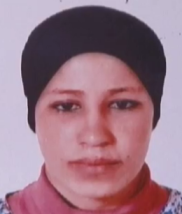This is a sad recurring theme in the Moroccan This is a sad recurring theme in the Moroccan news cycle. How much commentary can one voice without slipping into redundancy? I recently translated the video testimony given byNasma Naqash, a young Moroccan domestic laborer who threw herself from the rooftop of an apartment building after suffering rape, rejection from her family, and depression. Just less than a year ago, the tragic suicide of Amina Filali, a minor who was raped and forced into a marriage with her rapist, rocked headlines in Morocco and mobilized people across political, regional, and economic lines, collectively calling for justice and the removal of the disgusting article 475.
I have to keep checking myself because it seems I’ve repeated these lines over and over again. I’ve read them over and over again. I hear them over and over again. And yet, injustice dominates. Just last week, it was reported that Hassan Arif, Moroccan parliament member, joyously paraded his “innocence” after he was acquitted of rape charges. And on the other side of the court bench, his victim, Malika Slimani, was faced with charges after refusing to entertain what she rightfully described as the lack of integrity of the case.
Nasma Naqash, Amina Filali, and Malika Slimani are not simply victims of sexual abuse–they are also victims of a political system marred by authoritarianism built upon the foundations of patriarchy, nepotism, and corruption. It’s not simply that they are women with underprivileged economic backgrounds, but that the state, as a source of dominant and unchecked power, is actively complicit in the violence and injustice inflicted upon these women. As an institution that enforced political economic policies based on the framework of neoliberalism and the remnants of colonialism that are heavily entrenched in domestic policy making–policies that triggered massive income inequalities and empowered a political-business elite that has played a major role in propping up the authoritarian state–this becomes a bigger problem than just a man escaping justice after committing a gender-based crime.
For this, I struggle finding the will to applaud recent news that article 475 is in the process of being scrapped, the article cited in the case of Amina Filali that forced her into a marriage with her rapist. Removing this horrendous article from the legal process should not be the only measure taken to prevent these recurring cases. The law is only one of the forces these women are victims of.
*Originally posted on الشرقية في الغرب



No comments:
Post a Comment